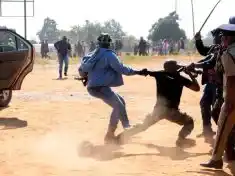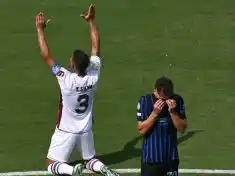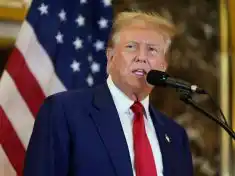
The recent anti-Smartmatic demonstrations in Malawi have reignited a national debate about the role, conduct, and command of the country’s security forces—particularly the Malawi Police Service (MPS) and the Malawi Defence Force (MDF).
Citizens, civil society organisations, and legal scholars alike have expressed concerns over the handling of protestors, citing incidents of excessive force, questionable detentions, and a lack of impartial response to citizen grievances.
These events have exposed a growing perception among many Malawians that the country’s security institutions are no longer neutral, but have become tools of political preservation, defending ruling elites rather than the Constitution.
Section 153 of the Constitution of Malawi establishes the Malawi Police Service as a professional, impartial body responsible for the protection of public safety, the rights of persons, and the enforcement of law and order.
Similarly, Section 160 of the Constitution creates the Malawi Defence Force, which is mandated to operate in a non-partisan and professional manner to protect Malawi’s territorial integrity and support civil authority when called upon under lawful conditions.
However, when citizens witness soldiers and police officers acting in ways that appear politically motivated or excessively forceful against unarmed demonstrators, the very legitimacy of these institutions is questioned.
This brings to the forefront the role of the Commander-in-Chief of the Malawi Defence Force and the Malawi Police Service—President Lazarus McCarthy Chakwera.
As the constitutional head of the security apparatus, the president is responsible for ensuring that security forces operate within the bounds of the law, maintain public trust, and remain accountable to democratic principles.
The president’s silence or perceived inaction in the face of security force misconduct can be interpreted as complicity or, at the very least, a failure in oversight.
At a time when Malawians are demanding transparency, accountability, and justice, the lack of a clear, consistent response from the presidency risks undermining both democratic gains and public confidence in the rule of law.
Furthermore, the appearance of selective policing—where protests aligned with government interests are tolerated, while those critical of the administration are swiftly suppressed—has raised further questions about the politicisation of the security sector.
This constitutional dilemma highlights a critical governance challenge: how can Malawi ensure that its security forces are loyal to the Republic, not the ruling party, and are guided by the Constitution rather than political instructions?
There is an urgent need for Parliament, the Malawi Human Rights Commission (MHRC), the Office of the Ombudsman, and independent watchdogs to demand transparency and regular reporting from the security sector.
In democratic societies, the ultimate command over security institutions must never be seen as absolute or unchecked—even for a sitting president.
Checks and balances are essential not only for curbing abuse but also for restoring public confidence that security forces serve the people, not powerful politicians.
In light of the events surrounding the anti-Smartmatic demonstrations and the government’s tepid response, President Lazarus Chakwera’s performance as Commander-in-Chief raises serious questions about leadership in times of national tension.
On a scale of 1 to 10, President Chakwera deserves a rating of 4 out of 10 for his handling of the security forces during this period.
This rating reflects a failure to provide clear leadership, ensure accountability, and uphold constitutional protections for citizens engaged in lawful protest.
As the 2025 general elections approach, how President Chakwera addresses these concerns will significantly influence public perception of his legacy, and potentially determine his political fate.





0 Comments